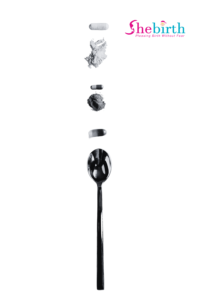9 Essential Prenatal Vitamins for a healthy Pregnancy

Taking prenatal vitamins is one of the most crucial steps you can take for your health and the health of your future baby. Whether you’re planning to conceive or are already in the early stages of pregnancy, starting a prenatal vitamin regimen is essential. Here’s everything you need to know about why prenatal vitamins matter, how they differ from regular multivitamins, and when to start taking them.
Why Are Prenatal Vitamins Important?
Prenatal vitamins are specially formulated to meet the nutritional needs of expectant mothers and their growing babies. These vitamins provide essential nutrients that support fetal development and help prevent birth defects. They ensure that both you and your baby receive the necessary vitamins and minerals, even if your diet lacks certain nutrients.
For instance, folic acid, a key ingredient in prenatal vitamins, is vital for preventing neural tube defects in the developing baby. Additionally, some women find that taking prenatal vitamins before pregnancy helps reduce the severity of morning sickness, making the early stages of pregnancy more manageable.
How Are Prenatal Vitamins Different From Regular Multivitamins?
Prenatal vitamins are specifically designed to provide the higher levels of certain nutrients needed during pregnancy. For example, pregnant women need more folic acid and iron than those who aren’t pregnant:
Folic Acid
Iron
DHA and ARA
Calcium
Vitamin D
Choline
Omega-3 Fatty Acids
B Vitamins
Vitamin C
Folic Acid: Pregnant women need 600 micrograms of folic acid daily to support the development of the baby’s brain and spine. Most prenatal vitamins contain at least 400 micrograms, and some may have up to 800 micrograms to ensure you’re getting enough.
Iron: Your body needs extra iron during pregnancy to produce additional blood for the placenta and baby. While non-pregnant women need 18 milligrams of iron daily, pregnant women require 27 milligrams. Prenatal vitamins typically include this higher amount.
DHA and ARA: Some prenatal vitamins also include DHA (docosahexaenoic acid) and ARA (arachidonic acid), essential fatty acids that support brain and eye development, particularly in the third trimester.
In addition to these key nutrients, prenatal vitamins often include:
Calcium: Essential for building strong bones and teeth in both you and your baby. Calcium also helps your circulatory, muscular, and nervous systems function properly. During pregnancy, if you don’t get enough calcium, your body will take it from your bones to give to your baby, which can lead to bone loss.
Vitamin D: Works in tandem with calcium to support bone health. Vitamin D also plays a crucial role in your immune system and helps reduce the risk of complications such as preeclampsia. It’s recommended that pregnant women get at least 600 IU of vitamin D daily.
Choline: Important for the development of your baby’s brain and spinal cord. Choline helps prevent neural tube defects and supports brain function. While not always included in prenatal vitamins, it’s recommended to ensure adequate choline intake through diet or supplementation.
Omega-3 Fatty Acids: Particularly DHA, are critical for brain and eye development in the baby. Omega-3s also support the heart and immune system. Since these fats are not produced by the body, they must be obtained through diet or supplementation.
B Vitamins: This group of vitamins, including B6 and B12, plays a vital role in your baby’s development. B6 can help alleviate morning sickness, while B12 is important for nerve function and the production of DNA and red blood cells.
Vitamin C: An antioxidant that supports your immune system, helps with iron absorption and contributes to healthy skin, bones, and connective tissue for both you and your baby.
While taking a prenatal vitamin ensures you’re getting a good portion of your daily nutrient needs, it’s still important to maintain a well-balanced diet to support your pregnancy fully.
When Should I Start Taking Prenatal Vitamins?
The best time to start taking prenatal vitamins is as soon as you decide to try to conceive. Ideally, you should begin at least one month before pregnancy and continue through the first 12 weeks when your baby’s development is most critical. Many healthcare providers recommend continuing prenatal vitamins throughout pregnancy and breastfeeding to ensure both you and your baby receive essential nutrients.
Before starting a prenatal vitamin, it’s a good idea to discuss your options with your healthcare provider. They can recommend the best prenatal vitamin for your needs and suggest any additional supplements based on your health history, diet, or bloodwork.
